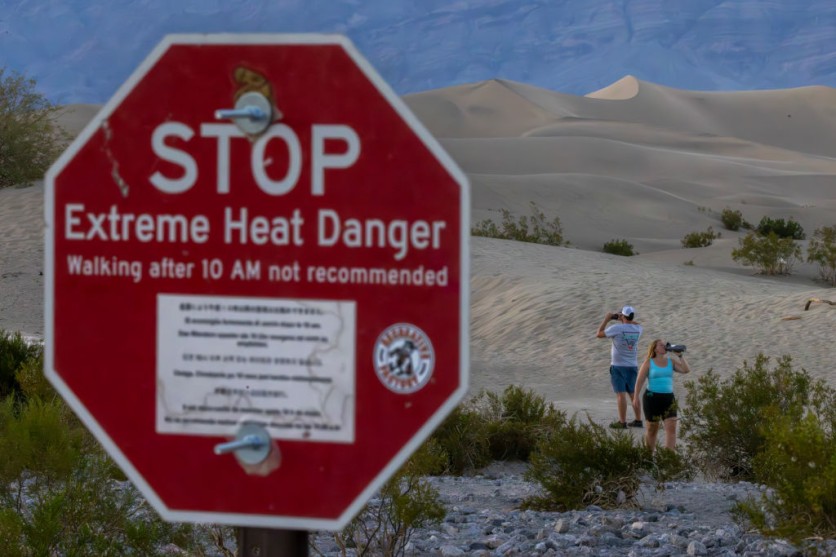Death Valley, known for its scorching temperatures, is facing the possibility of breaking the record for the hottest temperature ever recorded on Earth, according to experts.
Business Insider reports that the intensifying heat waves, driven by climate change, have resulted in extreme weather events, prolonged droughts, and devastating wildfires.

Hotter July
Recent data from the World Meteorological Organization indicates that June was the hottest month on record, and July is expected to be even hotter.
The US National Weather Service reports that excessive heat warnings and advisories now cover more than 100 million people in the country, with the Western region experiencing particularly punishing conditions.
Death Valley, located in California, is notorious for its extreme heat. The National Parks Service reveals that summer temperatures in the region often surpass 120 degrees Fahrenheit (49 degrees Celsius) due to the valley's unique topography, where hot air gets trapped in its narrow basin surrounded by mountains.
However, this weekend could witness temperatures surpassing 130 degrees Fahrenheit, potentially breaking the record for the hottest temperature ever reliably measured on Earth.
Phoenix, Arizona, has also been enduring scorching temperatures above 110 degrees Fahrenheit for an extended period, leading to cases of second-degree burns from red-hot sidewalks.
Heatwaves Around the World
The heatwave is not limited to the United States. Europe, the Middle East, and southeastern Turkey are also experiencing sweltering heat, and Morocco has issued an extreme heat alert.
These heatwaves are symptoms of the changing climate caused by increased levels of carbon dioxide and methane emissions, according to experts.
The consequences of extreme weather events are becoming more evident worldwide. Uruguay, for example, is grappling with a severe drought that has left its only freshwater reservoir almost dry, leaving over half of the population without access to safe tap water.
Northern Argentina, southern Patagonia, and Iraq are also facing the impacts of climate-related water shortages, affecting agriculture, food production, and livelihoods.
Petteri Taalas, the secretary-general of the World Meteorological Organization, emphasizes that the rising frequency of extreme weather events underscores the urgent need to reduce greenhouse gas emissions as quickly and significantly as possible.
The far-reaching effects of these events are felt in human health, ecosystems, economies, agriculture, energy, and water supplies.
As the heat wave continues to grip regions around the world, authorities are urging individuals to practice heat safety measures such as staying hydrated and avoiding strenuous outdoor activities.
It serves as a stark reminder of the pressing need to address climate change and its detrimental consequences on our planet.
Related Article : Lab-Grown Meat More Harmful to Environment Than Real Meat, Claims New Study-Produces 25X More CO2!

ⓒ 2026 TECHTIMES.com All rights reserved. Do not reproduce without permission.




